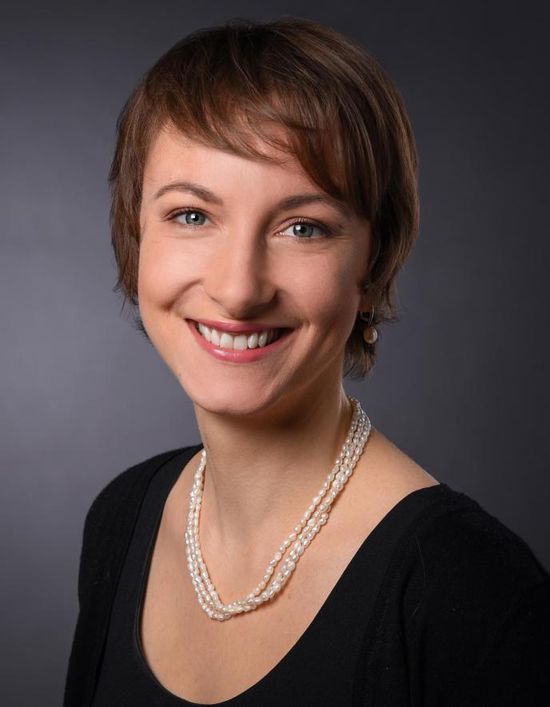An error occurred while loading the video player, or it takes a long time to initialize. You can try clearing your browser cache. Please try again later and contact the helpdesk if the problem persists.
In allen Anwendungen in der Informatik steckt eine große Portion Mathematik. Insbesondere basieren viele Algorithmen, die uns täglich helfen (zum Beispiel Googles Suchalgorithmen oder Routenfindung bei Navigationssytemen) auf cleveren mathematischen Einsichten.
In diesem Kurs wird die Sprache der modernen Mathematik vorgestellt. In der ersten Woche werden wir dazu die grundlegenden Bausteine einführen; dabei wird es um Quantoren und Junktoren, sowie Formalisierungen und Spezifikationen gehen. In der zweiten Woche werden wir diese Themen anhand ausgewählter Beispiele (zum Beispiel Logarithmengesetze und Landau-Notation) anwenden.
Für diesen Kurs ist kein akademisches Vorwissen aus der Mathematik nötig.
语言: Deutsch
Advanced, Fundamentals
课程信息
In allen Anwendungen in der Informatik steckt eine große Portion Mathematik. Insbesondere basieren viele Algorithmen, die uns täglich helfen (zum Beispiel Googles Suchalgorithmen oder Routenfindung bei Navigationssytemen) auf cleveren mathematischen Einsichten.
In diesem Kurs wird die Sprache der modernen Mathematik vorgestellt. In der ersten Woche werden wir dazu die grundlegenden Bausteine einführen; dabei wird es um Quantoren und Junktoren, sowie Formalisierungen und Spezifikationen gehen. In der zweiten Woche werden wir diese Themen anhand ausgewählter Beispiele (zum Beispiel Logarithmengesetze und Landau-Notation) anwenden.
Für diesen Kurs ist kein akademisches Vorwissen aus der Mathematik nötig.
课程内容
Woche 1:
Aussagen- und Prädikatenlogik, sowie Graphen.Woche 2:
Münzwiegen, kürzeste Pfade und PageRank.Abschlussprüfung
I like, I wish
订阅本课程
Learners
评分
本课程已由49位用户进行了五分制评分,平均得分为4.35
证书要求
- 课程证书 授予者需要至少取得课程总分的百分之 25%。
- 参与证明 授予者需要至少学习了所有课程资料的百分之 50%。
欲知详情,请访问证书指南.
该课程提供者

Timo Kötzing is postdoctoral researcher at the Algorithm Engineering group of the Hasso Plattner Institute (HPI). His research concerns the theory and application of randomized search heuristics, in particular evolutionary computation and swarm intelligence. He received his PhD in computer science from the University of Delaware, USA, in 2009 and was afterwards a research scientist at the Max Planck Institute for Informatics and at the University of Jena. Since June 2015 he works at the HPI.

Pascal Lenzner is postdoctoral researcher at the Algorithm Engineering group of the Hasso Plattner Institute (HPI). His research focuses on the intersection of graph algorithms, networks and algorithmic game theory. After studies at the University of Jena and ETH Zurich, Switzerland, he received his PhD in computer science from Humboldt-University Berlin in 2014. Before joining HPI in October 2015, he worked as research scientist at the University of Jena.

Thomas Bläsius is postdoctoral researcher at the Algorithm Engineering group of the Hasso Plattner Institute (HPI), with his research centering around graph algorithms. Starting in 2006, he studied computer science at the Karlsruhe Institute of Technology (KIT), finishing in 2011 with a diploma. Afterwards, he did his PhD in computer science (also at the KIT), finishing in 2015. Since then, he is at his current position at the HPI.

Karen Seidel is a PhD student in the Research Group for Algorithm Engineering at the Hasso-Plattner-Institute (HPI) in Potsdam, Germany. Her previous research in Artificial Intelligence focuses on modelling learning with Automata and Turing Machines. She graduated from the University of Bonn with a master in mathematics and worked in Mathematical Logic and Cognitive Mathematics at the Universities of Münster, Osnabrück and Cologne. She has wide-ranging experience in teaching and works at the HPI since 2017.